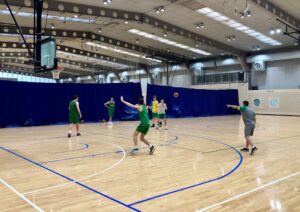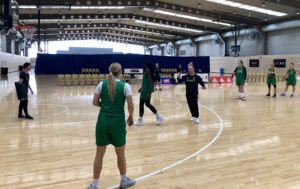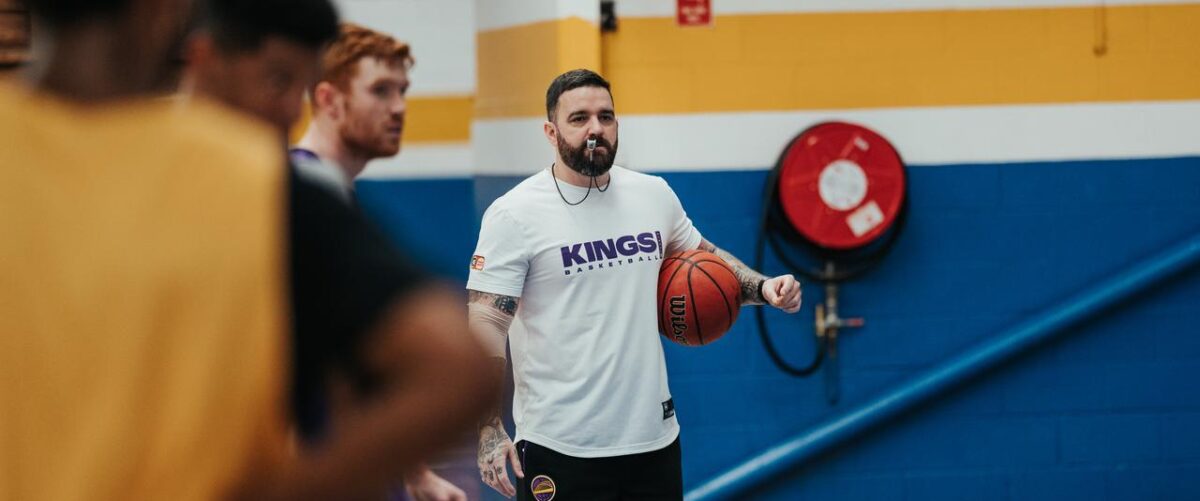Coaches spend a significant amount of time in constructing an efficient, effective and dynamic practice plan, but do we spend a proportionate amount of time reviewing and reflecting on practice?
Reviewing practice, reflecting on the efficiency and value of the session is a crucial aspect to driving improvement and ensuring the precious commodity of time is being used to drive learning and improvement.
So often, coaches are running out of practice to take on the next task or often, finishing practice in the late evening after a full day of work and focusing on getting home to family and a meal before doing it all again the next day.
Taking time after practice to sit and reflect, to discuss with assistant coaches and take detailed notes can be a challenge for time poor coaches and is often an aspect of coaching that is ignored.
But just as coaches place high value on reviewing game vision and undertaking detailed thought and discussion on games, taking some time to review and reflect on practice is important at all levels.
So, in a time poor environment, how can coaches add some worthwhile practice review to their coaching regimen? We discuss some simple ideas here.

“Mark-up” the practice plan –
During the course of practice, there will often be small changes to the practice plan. A coach may stay longer on one drill/concept; or add an element as the drill or breakdown unfolds.
One effective review element is to simply make note of this on the practice plan as you go. Have a printed copy of the plan court-side and if there are any changes or additions to the plan, have a coach note them on the “master” plan. This at least provides a record of what was covered and/or changed.
Linked to this, ensure any drill or segment in the plan you did not get to are marked accordingly. There is nothing wrong with not getting to a drill in a session, the issue will be to not add that drill into the next session because you think you have covered it.
“Open” whiteboard court-side –
Have a whiteboard court-side during the session and have coaches write down any observations during the session – positive or constructive. If they see it or think it, write it.
At the end of the session, you will have 8-10 observations from the session from a different lens and this can assist in the review the next day or when sitting down to write the next practice plan.
Simply take a photo of the board and use it for future reference. Keep the photos on your phone as a record and then print off after 4 or 5 sessions to see if there are any common comments or observations.
Some coaches may allow their senior players to add a comment to the board, as they are in the session and have a good feel for their learning or detail in each drill or scrimmage.

The ABCD of practice –
Speak to the assistant coaches and perhaps a couple of players about rating the practice with a simple ABCD ranking. There doesn’t need to be great detail, at the end of the session, simply ask the coaches and any included players their “grade” for the session.
Write the grades down and again, keep on file (either on the practice plan or the “notes” section on your phone) for review.
If there is a disparity between coaches on the grade, this is an ideal opportunity to engage in conversation to see why they have arrived at their assessment. Similarly, if there is a “run” of poor grades, ask questions and seek reflection.
The Power of Three –
Have each assistant coach send you three dot point observations after each practice. Keep it to three to make it efficient and manage the “white noise” in the review process.
You may also have the team manager or other support staff send through their three key observations, as sometimes they will have a perspective or insight the coaches may not have.
If you have a visiting coach observing practice, have them provide three dot points as well. The “fresh eyes” will bring a different lens and often provide some insights that coaches don’t have when they are in the day to day.
This can be as simple as a text message following practice or once the coaches have arrived home. Ask for the points within an hour of the session concluding, as this will ensure they are authentic and reflective or what just happened.
Over the course of a month, you will have a range of dot points and can start assessing what comments or elements are common and if there are any trends for practice.
These are just a handful of ideas and concepts in the review of practice. At the elite and professional level, coaches will review practice vision, create edits and also make use of statistic and other data from sessions.
Regardless of your setting or level, finding time to put some review mechanisms in place will ensure you are constantly evolving and providing a dynamic learning environment for your players.




Leave a Reply